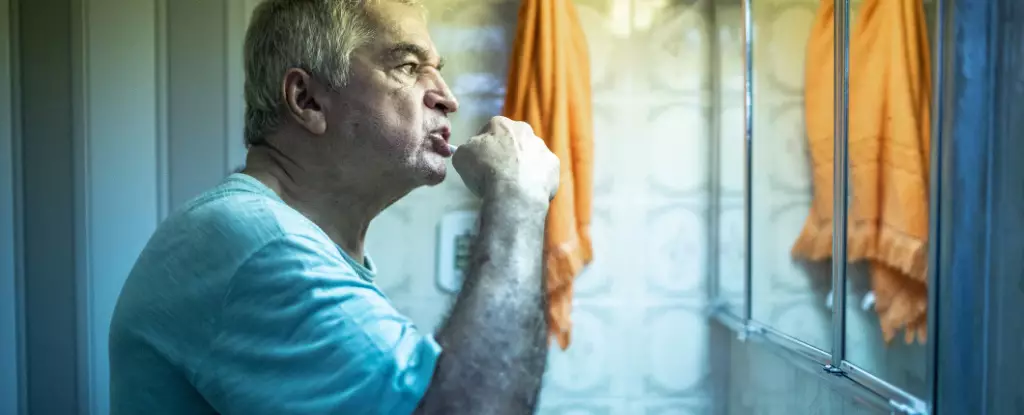Oral hygiene has long been recognized as an important aspect of overall health. Now, a new analysis of over 2,700 patients has found that keeping teeth clean can actually help prevent pneumonia in hospitals. This is especially crucial for patients who are unable to brush their teeth independently. In this article, we will delve into the details of the analysis conducted by Selina Ehrenzeller and Michael Klompas, two epidemiologists specializing in infectious disease, and explore the implications of their findings.
For years, the evidence surrounding the link between oral hygiene and pneumonia has been somewhat conflicting. While the logic behind this connection is clear – bacteria and pathogens from the mouth can potentially cause lung infections such as pneumonia – previous studies have not provided a definitive answer. However, Ehrenzeller and Klompas sought to resolve this uncertainty by analyzing data from 15 clinical trials involving a total of 2,786 patients.
The analysis conducted by Ehrenzeller and Klompas revealed that hospital-acquired pneumonia rates were significantly lower among patients who brushed their teeth daily, at least twice a day. Hospital-acquired pneumonia is a prevalent and dangerous lung infection that can worsen the health of already-ill patients. By incorporating toothbrushing into the care of ventilated patients and encouraging other patients to do the same, hospitals may be able to improve oral health and reduce pneumonia cases.
Reducing the Risk for Critically-Ill Patients
Critically-ill patients are particularly vulnerable to infections and often find themselves surrounded by drug-resistant superbugs in hospital environments. Therefore, it is crucial to find low-cost and effective ways to prevent these infections. The findings of Ehrenzeller and Klompas suggest that something as simple as brushing teeth can make a significant difference. Toothbrushing not only reduced pneumonia rates among patients on breathing support but also led to shorter hospital stays and fewer days on mechanical ventilation for patients in intensive care.
The analysis conducted by Ehrenzeller and Klompas emphasizes the significance of implementing an oral health routine that includes regular toothbrushing for hospitalized patients. This routine is especially important for those on mechanical ventilation who may require assistance from care staff. Rupak Datta, a hospital epidemiologist at Yale School of Medicine, agrees with these findings, stating that routine toothbrushing is an essential component of standard care for ventilated patients.
While the analysis showcased compelling data for patients on mechanical ventilation, no significant effect was found for hospitalized patients who were not receiving this form of support. However, it is important to note that only two of the 15 studies included in the analysis involved non-ventilated patients. Therefore, the benefit of toothbrushing in reducing pneumonia remains uncertain in this particular group.
The analysis conducted by Selina Ehrenzeller and Michael Klompas highlights the importance of oral hygiene in preventing pneumonia among hospitalized patients. Regular toothbrushing has been shown to significantly reduce the risk of hospital-acquired pneumonia, particularly for those on mechanical ventilation. Implementing an oral health routine that includes toothbrushing can be a cost-effective way of improving overall health outcomes for patients in hospitals. However, further research is needed to fully understand the impact of toothbrushing on the prevention of pneumonia in non-ventilated patients.


Leave a Reply